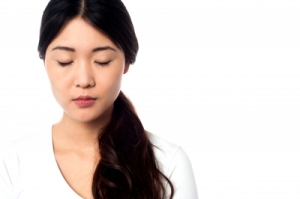Did you know that if you live in the Midlands or the North East (UK) you might already be drinking artificially fluoridated water via your household drinking water?
It is believed that the UK government want to extend the fluoridation scheme to cover the whole country, so if you do not want to drink artificially fluoridated water on a daily basis then you will need to put a filtration and purification system in place.
What is Fluoride?
Fluoride comes from Fluorine, which is a naturally occurring mineral that is found in rocks and soil. As water passed through it will naturally pick up trace minerals and this includes fluoride. Fluoride is artificially added to toothpaste and water, and is found in some foods, and in tea.
Pros
The argument to add fluoride to the water supply is due to studies showing that adding it in areas where fluoride levels in the water are low can reduce the prevalence of tooth decay in the local population.
Cons
According to Medical News Today, some of the potential health risks of long-term over-consumption of fluoridated water are:
- Dental fluorosis, an aesthetic issue causing white specks or streaks on the tooth enamel. Especially common in young children under the age of six.
- Skeletal fluorosis, causing bones to harden and lose their elasticity, becoming more prone to breaking, pain, and impaired joint mobility.
- Neurological problems, including impaired development in children.
- Thyroid problems, as a result of damage to the parathyroid gland, resulting in excess calcium levels in the blood.
- An increased risk of bone cancer and osteoarthritis.
- Acne and other skin issues.
- Reproductive and fertility issues.
My opinion
I personally don’t want to drink fluoride on a daily basis. If I want to use it to prevent tooth decay then I would prefer to use a fluoride toothpaste (which I also don’t), rather than consuming the fluoride through my entire body via drinking water.
Although fluoride is a naturally occurring mineral found in water, we don’t all live with access to fresh water springs where we can consume it direct from mother nature! The water we receive via our household taps and faucets has undergone chemical treatment and therefore I would prefer to filter at home.
In addition to fluoride in water, it is also found in our tea. Truth About Fluoride states “some tea has two, three or even six times the amount of fluoride when compared to tap water! Easily putting millions of people around the world over the safe amount of daily fluoride intake.” If we are already consuming fluoride via other sources then why do we need it in our regular tap water also?
What can you do?
As always, we have a choice. It might not seem that way if the government decide to fluoridate the entire water supply. But it is up to us to take personal responsibility, and put measures in place to protect our own health and wellbeing, and that of our family.
This is why I installed an undersink water filtration system back in 2021, and am now promoting this system to help others do the same.
The Energy Plus Undersink Filter System I use gives extremely efficient removal of fluoride, as well as heavy metals, chlorine, pesticides, hormones and pharmaceutical residues. It also filters out debris, bacteria and microplastics, down to 0.1 micron.
It then goes on to restructure the water to make is highly bio-available to the cells, (see the work of Dr. Catherine Clinton and Gerard Pollack for more on structured water), and releases Molecular Hydrogen to give it exceptional antioxidant properties (something that a water ioniser would do). This system is very reasonably priced.
Alternatively there is also a biocera water jug which carries out a similar process but just on a smaller scale.
If you would like to know more click my links or reach out to me directly via my contact details or on social media.






